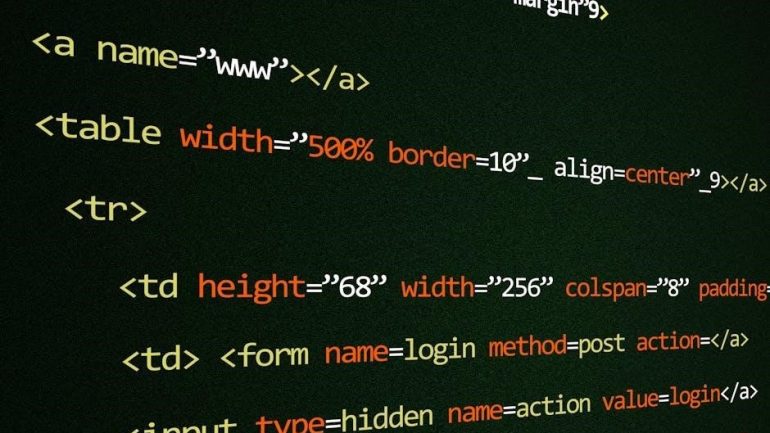Electronic Technician Test Questions and Answers PDF Free Download: A Comprehensive Guide
Are you aspiring to become a certified electronics technician? Preparing for your certification or pre-employment exam can be daunting. This comprehensive guide offers insights into electronic technician test preparation. We aim to provide resources and information to help you succeed, including where to find free PDF downloads.
Embarking on a career as an electronics technician often involves navigating through various certification and pre-employment examinations. These exams serve as crucial benchmarks, assessing your understanding of fundamental concepts and practical skills essential for the role. They evaluate your knowledge in areas such as basic electronics, networking protocols, and the use of electrical measurement instruments.
The purpose of these exams is multifaceted. For employers, they provide a standardized way to gauge a candidate’s competency and readiness for the job. For individuals, passing these exams can open doors to better job opportunities and career advancement. The exams typically consist of multiple-choice questions, covering a wide range of topics within electronics.
Preparation is key to success. Understanding the exam format, the types of questions asked, and the key concepts tested is essential. Resources like study guides, practice questions, and sample exams can be invaluable tools in your preparation journey. By familiarizing yourself with these resources, you can increase your confidence and improve your chances of passing the exam.

Furthermore, many programs offer training in basic electronics, providing a solid foundation for exam success.
Free Resources for Exam Preparation
Preparing for an electronics technician exam doesn’t have to break the bank. Numerous free resources are available online to help you hone your skills and knowledge. These resources can significantly enhance your understanding of key concepts and improve your test-taking abilities.
One valuable resource is practice exams. Many websites offer free sample questions and practice tests that simulate the actual exam environment. These practice tests cover a wide range of topics, including basic electronics, networking, and measurement instruments. By taking these tests, you can identify your strengths and weaknesses and focus your study efforts accordingly.
Study guides are another excellent free resource. These guides provide a comprehensive overview of the topics covered in the exam, along with explanations, examples, and practice questions. Some study guides even include tips and strategies for test-taking.

Online forums and communities dedicated to electronics are also valuable resources. These platforms allow you to connect with other aspiring technicians, ask questions, and share knowledge. You can often find helpful tips, study materials, and even free practice questions shared by other members.
Consider exploring resources like Open Library for free PDF downloads of practice questions. Remember to utilize resources providing sample exam questions covering networking protocols and electrical measurement instruments.
Basic Electronics Practice Questions
Mastering basic electronics is crucial for any aspiring technician. Practice questions are an invaluable tool for reinforcing your understanding of fundamental concepts. These questions help you apply theoretical knowledge to practical scenarios, improving your problem-solving skills.
When tackling basic electronics practice questions, focus on core concepts like Ohm’s Law, Kirchhoff’s Laws, and basic circuit analysis. Expect questions about resistors, capacitors, inductors, and diodes. Understanding the behavior of these components is essential.

Look for questions that involve calculating voltage, current, and resistance in simple circuits. Practice identifying series and parallel circuits and determining their equivalent resistance. Be prepared to analyze circuits with voltage dividers and current dividers.
Another important area is understanding the characteristics of different types of electronic components. Practice questions may ask you to identify the function of a specific component or to determine its value based on its markings.
Don’t forget about semiconductor devices like transistors. Practice questions involving transistors may require you to analyze their operating regions or to calculate their gain. Consider questions about insulators and conductors too. Remember to seek sample questions similar to the actual assessment.
By consistently practicing basic electronics questions, you will build a solid foundation for more advanced topics and increase your confidence on the exam.
Networking and Communication Protocols Questions
In today’s interconnected world, understanding networking and communication protocols is essential for electronics technicians. Practice questions in this area will assess your knowledge of various protocols and networking concepts.
Expect questions on common networking protocols such as TCP/IP, UDP, HTTP, and Ethernet. You should understand their functions, how they operate, and their applications in different scenarios. Familiarize yourself with the OSI model and the roles of each layer.
Practice questions may also cover network topologies like star, bus, and ring. Be able to identify the advantages and disadvantages of each topology and understand how data is transmitted in each.
Wireless communication protocols are also important. Expect questions on Wi-Fi (IEEE 802.11), Bluetooth, and cellular technologies. Understand their characteristics, security protocols, and applications.
Another key area is network addressing, including IP addressing (IPv4 and IPv6) and subnetting. Practice questions may require you to calculate subnet masks or identify valid IP addresses.
Communication protocols like UART, SPI, and I2C are also relevant. Understand their principles of operation and their applications in embedded systems and device communication.
By practicing networking and communication protocols questions, you will develop a strong understanding of how devices communicate and how networks are structured, which is crucial for success as an electronics technician.
Electrical Measurement Instruments Questions
A core competency for any electronics technician is the ability to use electrical measurement instruments accurately and effectively. Expect questions related to various instruments and their applications in troubleshooting and circuit analysis.
You will likely encounter questions about multimeters, including their use for measuring voltage, current, and resistance. Understand the difference between AC and DC measurements and how to select the appropriate range on the multimeter.
Oscilloscopes are another crucial instrument. Practice interpreting waveforms, measuring frequency and amplitude, and identifying signal characteristics. Questions may involve calculating rise time, fall time, and pulse width.
Signal generators are used to create test signals for circuit analysis. Understand how to set the frequency, amplitude, and waveform shape of the generated signal; Be familiar with common waveform types like sine, square, and triangle waves.
Spectrum analyzers are used to analyze the frequency content of signals. Questions may involve identifying harmonics, measuring signal strength, and analyzing modulation schemes.

Impedance analyzers are used to measure the impedance of components and circuits. Understand how to interpret impedance measurements and how they relate to circuit performance.
Power supplies are essential for providing stable voltage and current to circuits. Understand the characteristics of different types of power supplies and how to select the appropriate power supply for a given application.
Practice questions may also cover instrument calibration and safety procedures. Understanding how to calibrate instruments and follow safety protocols is crucial for ensuring accurate measurements and preventing accidents.
Sample Exam Questions for Electronics Technicians
To give you a taste of what to expect, here are some sample exam questions that electronics technicians might encounter. These questions cover a range of topics, testing your knowledge of basic electronics principles, circuit analysis, and troubleshooting techniques.
Question 1: What is the purpose of a Zener diode in a circuit?
(a) To amplify a signal (b) To regulate voltage (c) To store a charge (d) To switch the orientation of signal voltage
Question 2: What type of material has no free electrons at room temperature?
(a) Conductor (b) Semiconductor (c) Insulator (d) Resistor
Question 3: Which instrument is used to measure the frequency content of a signal?
(a) Multimeter (b) Oscilloscope (c) Signal Generator (d) Spectrum Analyzer
Question 4: What does the invert button on an oscilloscope do?
(a) Allows continuity checks (b) Inverts the main display (c) Disallows signal voltage (d) Measures resistance
Question 5: What is the primary function of a mixer in a communication system?
(a) To amplify a signal (b) To change the frequency of a signal (c) To filter noise (d) To modulate a carrier wave
These sample questions are designed to assess your understanding of fundamental concepts. Reviewing these types of questions and their answers will help you prepare for your electronics technician exam. Remember to focus on understanding the underlying principles, not just memorizing answers.
Understanding Key Electronics Concepts
A solid grasp of fundamental electronics concepts is crucial for success as an electronics technician. These concepts form the building blocks for understanding more complex systems and troubleshooting effectively. Key areas to focus on include circuit theory, semiconductor devices, and digital logic.
Circuit Theory: Understanding Ohm’s Law (V=IR), Kirchhoff’s Laws (current and voltage), and series/parallel circuit analysis is essential. You should be able to calculate voltage, current, and resistance in various circuit configurations.
Semiconductor Devices: Familiarize yourself with the characteristics and applications of diodes, transistors (BJTs and FETs), and integrated circuits (ICs). Understanding how these devices function as switches, amplifiers, and rectifiers is critical.
Digital Logic: Learn the basics of digital logic gates (AND, OR, NOT, NAND, NOR, XOR) and their truth tables. Understanding binary numbers, Boolean algebra, and basic digital circuits is necessary for working with digital systems.
Components: Develop a thorough understanding of passive components like resistors, capacitors, and inductors and their behavior in AC and DC circuits.
Mastering these fundamental concepts will provide a strong foundation for tackling more advanced topics and solving practical problems in the field. Regularly review these concepts and practice applying them to real-world scenarios to reinforce your understanding.
Test Equipment and Troubleshooting Questions
Proficiency in using test equipment and effective troubleshooting techniques are paramount for electronics technicians. Exam questions often assess your ability to diagnose and repair electronic circuits and systems. Understanding the function and operation of various test instruments is crucial.
Oscilloscopes: Be familiar with using oscilloscopes to analyze waveforms, measure voltage, frequency, and time intervals; Understand concepts like triggering, timebase settings, and voltage scales.
Multimeters: Master the use of multimeters to measure voltage, current, resistance, and continuity. Understand how to select the appropriate range and interpret readings accurately.
Signal Generators: Learn how to use signal generators to produce various waveforms (sine, square, triangle) for testing circuits. Be familiar with setting frequency, amplitude, and offset.
Logic Analyzers: Understand the basics of logic analyzers for analyzing digital signals and troubleshooting digital circuits.
Troubleshooting questions may involve identifying faulty components, tracing signals, and using diagnostic tools to isolate problems. Practice common troubleshooting scenarios, such as identifying open circuits, short circuits, and component failures. Develop a systematic approach to troubleshooting, starting with symptom analysis and progressing to component-level testing.
Familiarize yourself with common electronic components and their failure modes to enhance your troubleshooting skills. Regularly practice using test equipment and troubleshooting circuits to build confidence and proficiency.
Study Guides for Electronics Technician Pre-Employment Examination
Preparing for an electronics technician pre-employment examination requires a structured approach. Study guides are invaluable resources that provide a roadmap for your preparation. These guides typically cover key topics and concepts relevant to the exam, offering a focused and efficient way to study.
A good study guide will outline the exam’s content, including basic electronics, circuit analysis, digital logic, and troubleshooting techniques. It may also include practice questions and sample exams to help you assess your understanding and identify areas for improvement. Look for study guides that provide detailed explanations of concepts and solutions to practice problems.
Some study guides may also offer tips and strategies for taking the exam, such as time management techniques and how to approach different types of questions. It is beneficial to review any provided sample questions and understand the reasoning behind the correct answers. Look for guides that cover essential topics and provide practice questions similar to what you might encounter on the actual exam.
Utilizing study guides can significantly enhance your chances of success in the pre-employment examination by providing a clear path for your preparation efforts. Remember, consistent study and practice are key to mastering the material and building confidence.
Where to Find Free PDF Downloads of Practice Tests and Questions
Finding free PDF downloads of practice tests and questions for electronics technician exams is a crucial step in effective preparation. Several online platforms offer these resources, allowing aspiring technicians to hone their skills and knowledge without incurring costs. Open Library is a great option, offering a vast collection of materials, including practice tests and questions in PDF format.
Many websites dedicated to electronics and technical education provide free downloadable practice tests. These resources often include sample questions covering various topics, such as basic electronics, networking protocols, and electrical measurement instruments. Ensure the materials are up-to-date and aligned with the exam’s content.
Technical forums and online communities related to electronics are another valuable source. Experienced technicians and educators often share practice questions and tests in PDF format. Engaging with these communities can also provide insights and tips from individuals who have already taken the exams.
Before downloading any material, verify its credibility and relevance. Look for practice tests that offer detailed explanations for answers, as this will help you understand the underlying concepts. Combining these free resources with study guides and other preparation materials can significantly improve your chances of success on your electronics technician exam.




